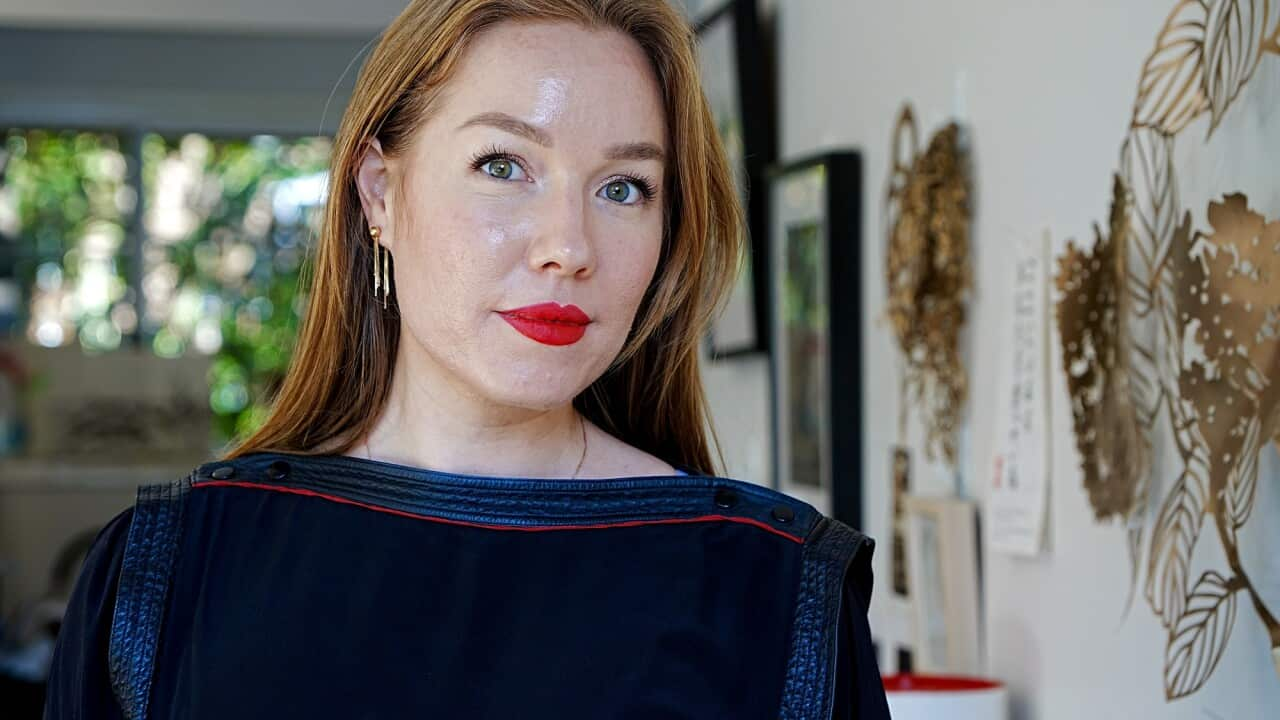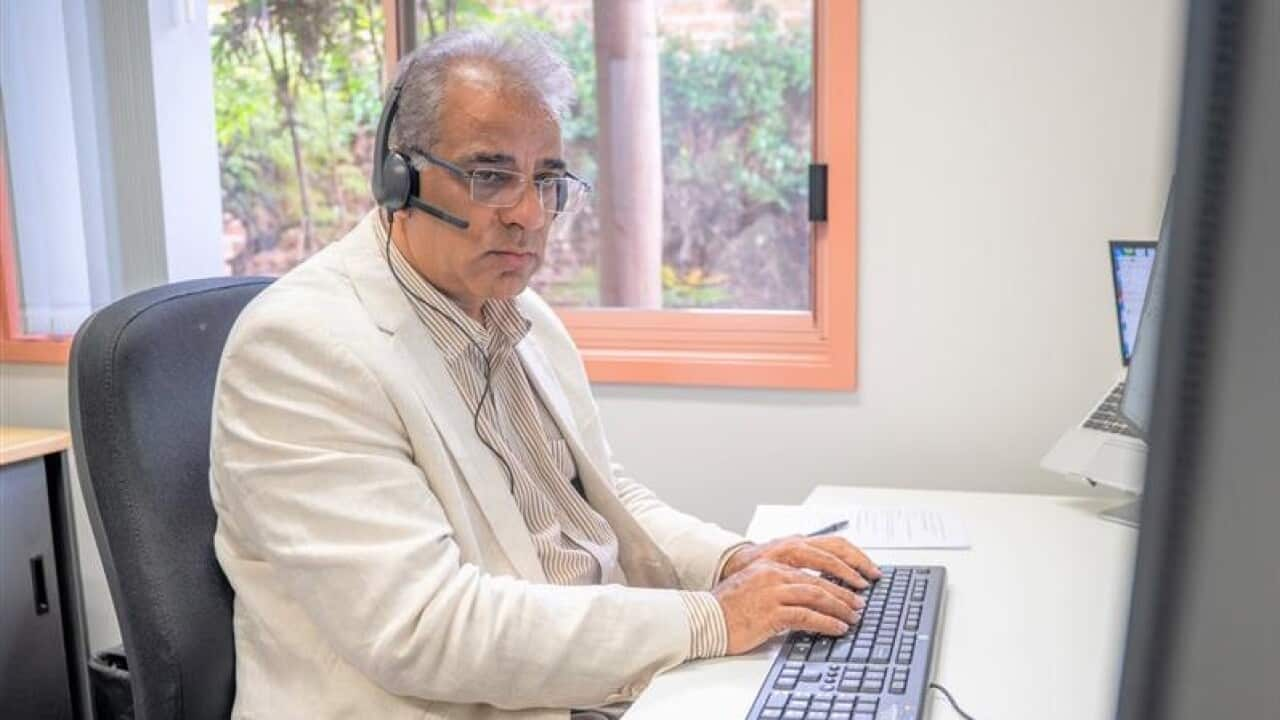Listen to Australian and world news, and follow trending topics with SBS News Podcasts.
A labour of love - artist Elysha Rei describes what went into the custom-made shirt that she says reflects her heritage as the granddaughter of a Japanese war bride.
It is delicate, featuring traditional Japanese paper with hand-cut designs.
"My mum and I made this shirt together. The pearl shell buttons as well which references the pearl diving industry in Queensland - they're all sewn in. And the shirt is made out of paper."
She says she also took inspiration from her childhood.
"When I was a young child, I used to enjoy listening to stories about her life, about our ancestors and cultural heritage and I didn't really realise it at the time, but it was informing a lot of my sense of self-identity."
Elysha's grandmother - the late Akiko Kirkham - came to Australia in 1953 - going against the wishes of her family.
Akiko married an Australian serviceman.
Looking back on old pictures of her grandmother, Elysha reflects on what it took for Akiko to leave her home country.
"I reckon she was one of those fiery, highly spirited women, which is sort of not typical for what you would think of like a traditional Japanese woman at the time. So the fact that she left her family in Japan and came to Australia with an Australian man was almost a little bit rebellious when you think about it."
But after World War Two, with Japan and Australia fighting on opposing sides, anti-Japanese sentiment was strong.
"When she arrived in Australia she really just wanted to embrace Australian culture. She wanted to be Aussie and so that meant learning how to cook different food, learning English and practicing that at home. And that's another big thing that kind of impacted my mother was that Japanese wasn't spoken at home, it was English. So that wasn't passed down in the same way that we might think of today."
While Elysha has always been proud of her background, it was different for her mother Jan Kirkham, who remembers being bullied growing up during the White Australia policy.
The policy was introduced in 1901 to allow only white migrants from Britain, with the policy officially renounced in 1973 under the Whitlam Labor government - and the establishment of the Racial Discrimination Act of 1975.
Jan says the attitudes at the time had a huge impact on what is was like growing up in Australia in those days.
"There was a lot of animosity because my mum was Japanese and you know, if there were families that had lost their brothers, grandfathers, husbands, whichever, and it was still raw in the early fifties. And so we didn't want to be different. I didn't want to eat Japanese food. I didn't want to learn Japanese. I wanted to be the same as every other kid in the street."
These Japanese women - like Akiko - who left their home country, faced many challenges in Australia: adapting to a new culture, while dealing with the traumas of war.
Jan Kirkham again.
"Mum spoke a little bit about it of when the bombs started dropping and how frightened she was and how she lost her friends as well. So it was on both sides, you know what affects everybody."
Over 650 Japanese women migrated to the country as the wives of Australian servicemen after World War Two.
Australian National University honorary senior lecturer Keiko Tamura has done extensive research on Japanese warbrides.
Dr Tamura describes the war brides as strong-willed and adaptable, despite the challenges of discrimination they faced with the White Australia Policy at the time.
"They tried very hard to be friendly and they wanted to be understood by their Australian neighbours and community as a person."
Back in her studio, Elysha is making the final preparations before an exhibition of her artworks is displayed in Townsville.
The city is also where Australia's first official Japanese consulate was located from 1896 until 1908.
North Queensland has a long history of Japanese migration - where many worked in the sugar cane and pearl industries.
Her collection - Shirozato to Shinju or White Sugar and Pearls - brings this history to the fore.
But watching her mother's journey - accepting her Japanese heritage - has been special.
"I feel like this is a beautiful connection when my mum's learning about things through that process as well, so it's sort of skipping a generation, and going back one."
While her grandmother's history is driving force in her art, Elysha believes war brides also changed perceptions of migrants from non-European backgrounds.
"I think they had a really tough time almost carrying that load, but yeah, they ultimately changed Australia to what it is today and now we are considered and proud to be a very multicultural society because of that."
The exhibition 'Shirozato to Shinju (White Sugar and Pearls)' is at Umbrella Studio Contemporary Arts in Townsville from 13 June until 27 July 2025













